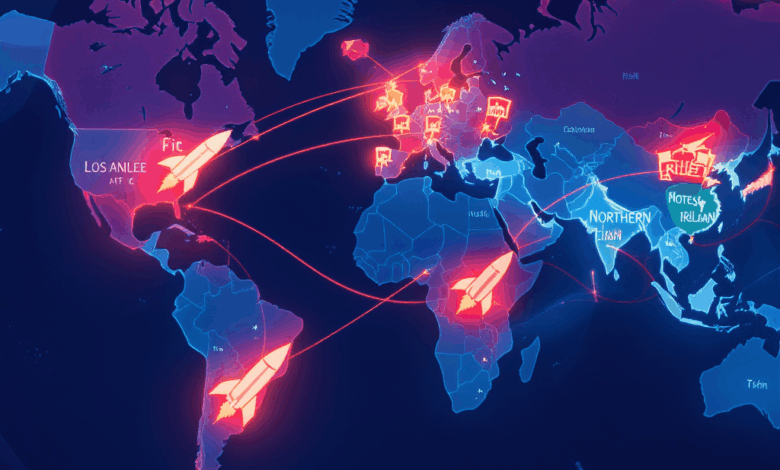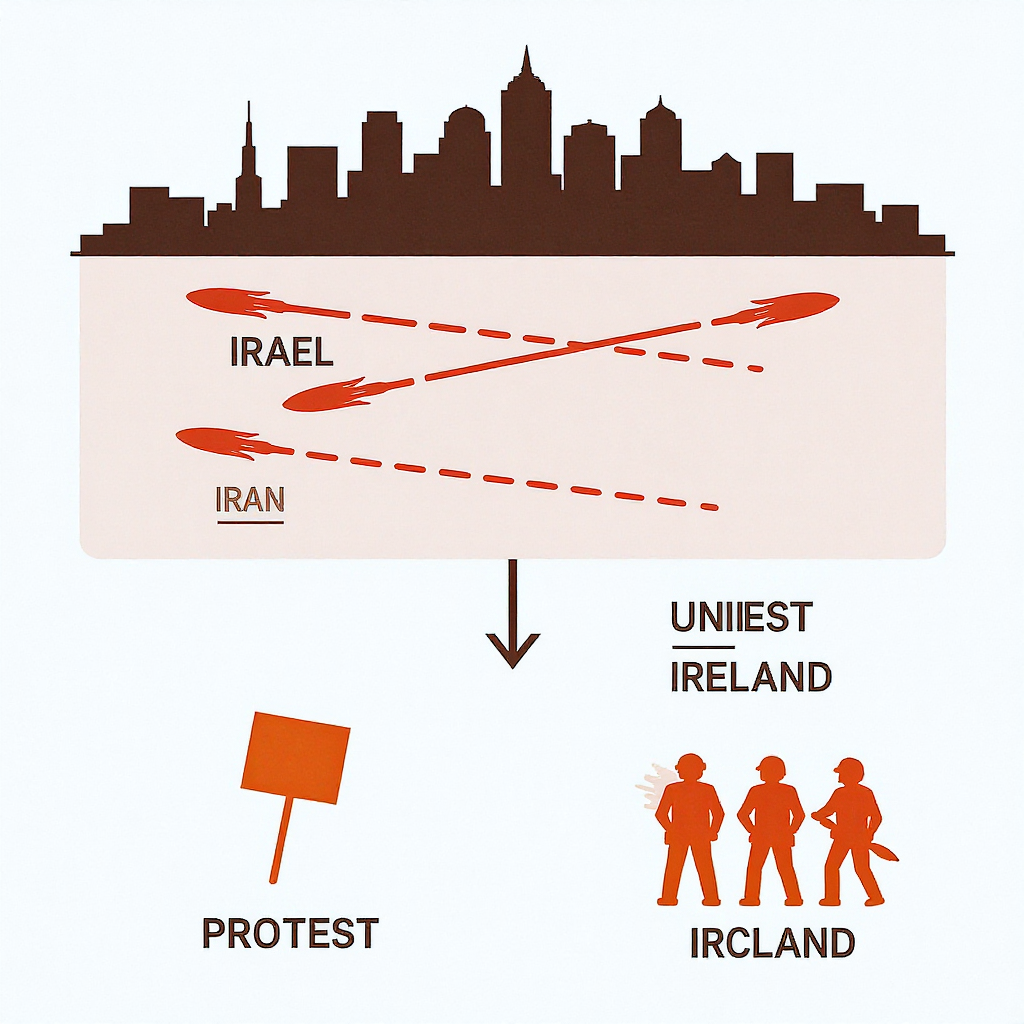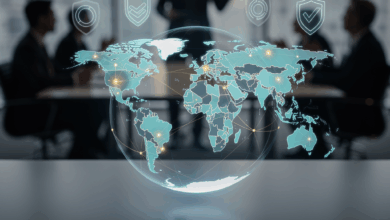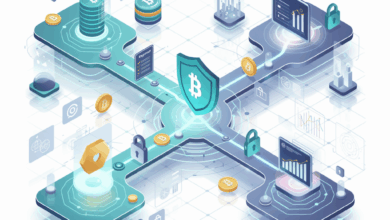Today News – Key Global Unrest and What It Means for You

Today’s Headlines: Unrest on Multiple Fronts Captures Global Attention
Tensions are flaring dramatically across several key regions right now — from the Middle East’s volatile missile exchanges to widespread protests in Los Angeles and violent riots in Northern Ireland. Why should this matter to you? Because these events are reshaping geopolitical landscapes, stirring debates on immigration and security, and affecting international diplomatic efforts. Dive in to get a clear snapshot of what’s unfolding and why staying informed is crucial.
Middle East Flashpoint Airstrikes and Retaliations
Israel’s recent airstrikes targeting Iran’s nuclear and military sites have sparked swift Iranian missile and drone counterattacks against key Israeli cities including Tel Aviv. This tit-for-tat conflict has not only caused casualties but also forced the postponement of a critical peace conference on Gaza. The situation escalates regional instability and disrupts efforts toward long-term peace.
Los Angeles Protests: From Demonstrations to National Guard Deployment
Since early June, Los Angeles has witnessed large-scale protests triggered by ICE raids, which escalated into riots. The intervention of federal National Guard troops marks a rare and contentious step in domestic affairs. Over 575 arrests and numerous injuries highlight the deep divisions over immigration policies and law enforcement approaches.
Northern Ireland Riots Community Tensions Explode
Riots sparked by a sensitive assault case involving immigrants have led to dozens of arrests and dozens of police injuries. The unrest underscores ongoing challenges in community relations and immigration integration, raising urgent questions about societal cohesion and government response strategies.
Why You Should Keep Reading
These crises aren’t isolated headlines; they interconnect with global politics, migration trends, and security concerns that impact economies, travel, and international relations. By understanding the core issues and latest updates, you gain a sharper perspective on world affairs and practical insights to navigate these uncertain times.
Stay informed — your awareness can empower personal safety, community engagement, and meaningful conversations.
What’s Next?
In upcoming sections, we’ll explore detailed timelines, key players involved, and practical advice for residents and global citizens alike. You’ll discover nuanced perspectives and actionable tips to stay safe and informed amid these complex situations.
Keep reading to unlock the full picture and understand the implications behind today’s most pressing news stories.
Navigating Civil Unrest: Practical Strategies for Community Resilience
Understanding the Roots of Social Unrest
Social unrest, such as protests and riots, often stems from complex socio-political grievances, including economic disparities, immigration tensions, and law enforcement conflicts. Recognizing these underlying causes is crucial for communities aiming to build resilience against future disruptions. For instance, in cities like Los Angeles and regions like Northern Ireland, historical context about immigration policy, social integration, and community relations shapes the nature of unrest.
Engaging with local history and demographic data helps community leaders and residents anticipate potential flashpoints. This insight allows for more strategic dialogue, targeted resource allocation, and proactive peacebuilding efforts.
Community-Led Conflict De-escalation Techniques
Effective conflict de-escalation involves trained community mediators who can intervene during early signs of tension. Techniques include:
- Active Listening and Empathy: Encouraging open, non-judgmental communication to understand grievances.
- Neutral Facilitation: Mediators serve as impartial parties to guide discussions between conflicting groups.
- Safe Spaces: Establishing locations where community members can express concerns without fear of reprisal.
Training programs for local volunteers on de-escalation methods can be implemented at relatively low cost, typically ranging from $500 to $2,000 per session depending on scale and expertise. These programs enhance local capacity to manage disputes before they escalate into violence.
“Empowering communities with conflict resolution skills reduces dependency on external enforcement and fosters long-term cohesion.” — Dr. Helen Murphy, Conflict Resolution Specialist
Practical Steps for Individuals During Unrest
For residents in affected areas, adopting a safety-first mindset is essential. Key actions include:
- Stay Updated Through Multiple Channels: Use a combination of local news, official social media accounts, and community bulletin boards to receive timely information.
- Develop Personal Emergency Plans: Identify safe routes, establish meeting points with family or friends, and prepare emergency kits including essentials like water, medication, and identification documents.
- Avoid High-Risk Areas: Recognize zones of active protests or clashes and plan alternate travel routes.
- Engage in Community Networks: Participation in neighborhood watch groups or local forums enhances mutual support.
These steps mitigate risks and empower individuals to respond effectively amid unpredictable circumstances.
Deep Dive into Geopolitical Ripple Effects of Middle East Escalation
Economic Impact on Global Energy Markets
The recent escalation between Israel and Iran has triggered immediate concerns in the oil and gas sectors. The Middle East supplies approximately 30% of the world’s oil, and conflict-induced disruptions can cause price volatility impacting global economies.
- Price Fluctuations: Oil prices surged by an estimated 12% following airstrikes and retaliatory attacks, affecting transportation costs and commodity pricing worldwide.
- Supply Chain Risks: Shipping lanes such as the Strait of Hormuz are vulnerable to closure or attacks, threatening maritime trade routes.
Businesses and consumers can expect increased costs for fuel and goods, underlining the importance of strategic energy planning and diversification.
Diplomatic Challenges and Peace Process Setbacks
The postponement of the New York Peace Conference on Gaza represents a significant diplomatic setback. Negotiations aimed at resolving the Israeli-Palestinian conflict face obstacles including:
- Distrust Between Parties: Military actions exacerbate skepticism and reduce willingness to compromise.
- International Mediation Strain: Major powers must balance intervention without escalating tensions.
Experts suggest that restoring dialogue requires confidence-building measures such as ceasefires, humanitarian access, and back-channel communications.
Military Technology and Asymmetric Warfare Trends
The use of drones and precision missile strikes marks a shift in modern conflict tactics in the region. Key observations include:
| Technology Type | Usage Example | Strategic Advantage | Limitation |
|---|---|---|---|
| Drones | Iranian drone attacks on Israeli infrastructure | Low-risk reconnaissance and targeted strikes | Vulnerable to electronic warfare |
| Precision Missiles | Israeli strikes on nuclear sites | High-impact with minimal collateral damage | Risk of escalation |
Understanding these technologies helps analysts predict future conflict dynamics and informs defense preparedness.
Policy and Social Implications of Immigration-Related Unrest
Comparative Analysis of Immigration Policies and Social Outcomes
Different countries’ approaches to immigration enforcement have varied consequences on social stability. For example:
| Country/Region | Enforcement Approach | Social Impact | Notable Outcomes |
|---|---|---|---|
| United States (LA) | Aggressive ICE raids | Protests and riots | Federal National Guard deployment |
| Northern Ireland | Restrictive integration | Community tensions | Riots and police injuries |
| Canada | Inclusive integration | Social cohesion | Lower incidence of unrest |
This comparison reveals that policies emphasizing integration and community engagement tend to reduce tensions.
Strategies for Enhancing Social Integration
Communities facing immigration-related unrest can adopt several practical measures:
- Cultural Exchange Programs: Facilitate mutual understanding through shared events and language classes.
- Economic Inclusion: Support immigrant entrepreneurship and employment initiatives to reduce economic marginalization.
- Community Policing: Develop law enforcement models that prioritize relationship-building and cultural competency.
Implementing these strategies requires collaboration between government agencies, NGOs, and local stakeholders.
Managing Media Narratives and Public Perception
Media coverage significantly influences public attitudes toward immigration and unrest. Responsible reporting entails:
- Avoiding sensationalism that escalates fears.
- Highlighting positive immigrant contributions.
- Providing context to complex issues rather than oversimplifying.
Community media literacy programs can empower residents to critically assess information and reduce misinformation-driven tensions.
Balanced narratives foster informed dialogue and diminish divisive rhetoric, essential for long-term harmony.
These expanded perspectives and actionable insights equip readers with a deeper understanding of the multifaceted crises shaping today’s headlines, alongside practical tools to navigate and contribute positively amid ongoing challenges.

Reflecting on Today’s Global Unrest Key Takeaways and Insights
The unfolding events across the Middle East, Los Angeles, and Northern Ireland underscore the complex interplay between geopolitical conflicts, social tensions, and immigration challenges. From the escalating missile exchanges impacting international diplomacy and energy markets, to community unrest highlighting deep social divides, this snapshot reveals how interconnected today’s crises truly are. Recognizing the root causes—from policy decisions to historical community dynamics—enables a more informed perspective that goes beyond headlines.
Applying Knowledge: Practical Steps for Individuals and Communities
Understanding these developments equips readers with actionable approaches to enhance personal safety and community resilience. Staying vigilant through reliable news sources, preparing emergency plans, and avoiding high-risk areas are essential for individuals in affected regions. Meanwhile, supporting community-led conflict resolution initiatives and advocating for inclusive integration policies can foster long-term social stability. Engaging in open dialogue and promoting balanced media narratives further contribute to reducing tensions and building bridges.
Moving Forward with Awareness and Engagement
In a world where today’s news rapidly shapes tomorrow’s realities, staying informed is more than a passive activity—it’s a tool for empowerment. We encourage readers to continue exploring related topics such as immigration policy impacts, conflict mediation techniques, and geopolitical trends to deepen understanding. By transforming awareness into thoughtful action, each of us can play a role in promoting safety, cohesion, and positive change amid uncertain times.
“Knowledge paired with community commitment lays the foundation for navigating challenges and fostering a more connected world.”





